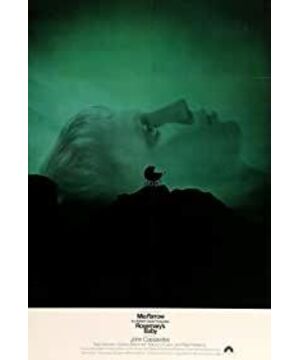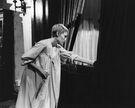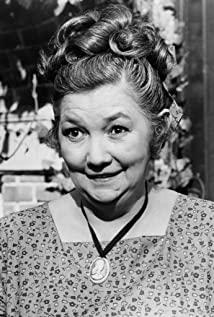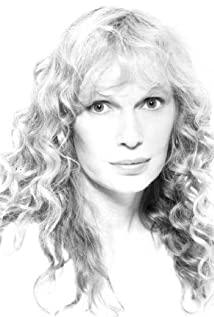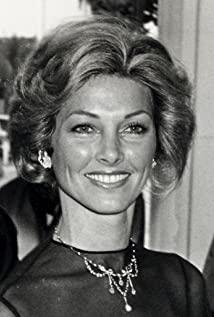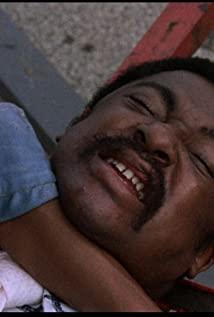It's not terror, it's a sense of despair and powerlessness rooted in the heart.
There are too many metaphors and symbols in the story: Rosemary's husband who talked about love and dreams all the time, but thought about his wife's womb for the sake of fame and fortune, and exchanged it with Satan, not even moral or human life. Consider again; those neighbors who are mild and friendly on the surface are all followers of Satan, and all their generosity and kindness is a disguise to show loyalty to the devil; the obstetrician is a messenger who welcomes a new life, but at this time, he has built a bridge to destroy the world with his own hands. ; High-level people only have arrogant diagnosis, but refuse to give patience and trust, and show no mercy to the weak who are on the verge of collapse; and the truly kind and sensitive people are regarded as "freak" and even die in an unexpected way... Polanski seems to borrow The cover of Time magazine implies that this is the world after God's death; but obviously from the beginning of Genesis, Satan has been wearing the mask of "goodness" and "hope" to tempt greedy human beings.
Humanity has not changed, Satan and his followers have not changed, the world has not changed.
Rosemary, the lamb who was targeted at the beginning, as a believer in God, was designed by the people around her to give birth to the son of the devil. She is the sacrificer and the most innocent and helpless person in the whole film; but she Having fought hard for the fetus in her womb, her mother's instincts have overcome her fear and disgust for the baby. The Son of Satan stops crying under her loving caress, and the film ends abruptly here.
It has to be amazed here. Since the heroine discovered the wizard's secret after Hatch's funeral, Mia Farrow's performance and the progression of the storyline are excellent. The viewer is only infected with Rosemary's love for the fetus with her actions and emotions, and is nervous and worried about her situation, and naturally ignores another possibility looming in their minds. It is precisely because of this that the birth of Satan's Son is all the more ironic, and the scene where Ro walks closer to the crib until he smiles softly doesn't seem to be split.
The camera returns to the exterior of the apartment, where it begins and ends; who would have guessed the suffocating evil lurking in this peaceful building? It is clear that Rosemary is so longing for her upcoming new life. Her well-decorated home is bright and warm, but it has become the grave of her marriage and life. I even felt that the female vocals at the end of the film had a mournful sigh.
The above, after watching the film, the nonsense and insights are not only due to the wonderful and thought-provoking storyline itself, but also to the superb acting skills of the heroine Mia Farrow, and also to the excellent director Polanski. narrative and expressive abilities.
Polanski's camera language and control of rhythm are too superb. As an audience, I can't even tell which step the heroine's originally happy and dull life began to slide into the abyss of despair; but it seems to be full of "help"-like hints everywhere. When the story walks to the end step by step, and recalls the development nodes of those plots again, Fang Jue's peaceful life is hidden and turbulent, and those carefully designed "coincidences" emerge as their true colors. There are no horror and bloody scenes, but it can make people feel depressed and creepy in retrospect.
This is the skill of director Polanski.
We can't deny Polanski's role in the film, nor Polanski's talent.
View more about Rosemary's Baby reviews


